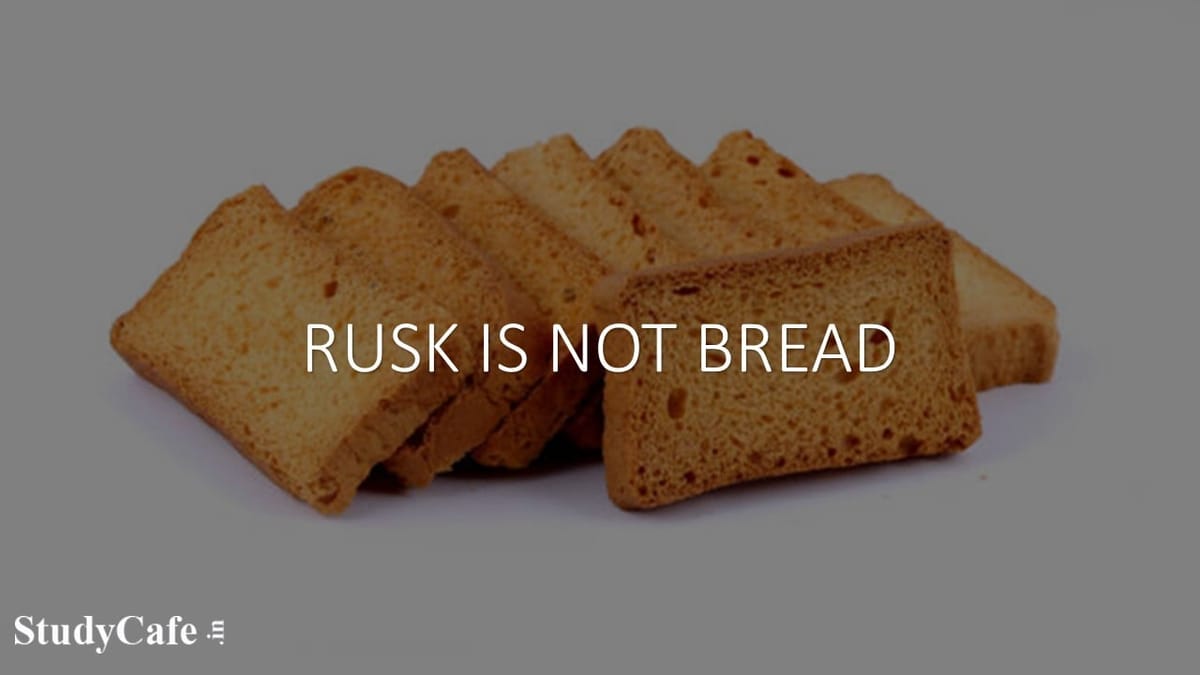Nilisha | Mar 17, 2022 |

Rusk is not bread: Meghalaya High Court refuses VAT exemption for rusk
The Meghalaya High Court ruled in the case of Sahaj Food Products Pvt. Ltd. Vs. State of Meghalaya and Others, that the state’s VAT exemption for bread cannot be extended to rusk since rusk is not the same as bread.
Rusk is the generic name for the product that the petitioner makes. Rusk is a type of toasted bread that, unlike soft untoasted bread, is crunchy, and is eaten more like a biscuit than bread or even toasted bread. In the state of Meghalaya, bread is exempt from value added tax. The Petitioner took advantage of the exemption by passing off its goods as bread. The petitioner contested the Department’s classification of rusk as distinct from bread and its attempt to levy VAT under the miscellaneous entry, which applies to undefined products. The petitioner failed to persuade the authorities that rusk existed at the end of three stages of adjudication before the Department and the Board of Revenue. The petitioner failed to persuade the authorities that rusk had to be classified as bread at the end of three stages of adjudication before the Department and the Board of Revenue, and the exemption was granted.
According to a bench led by Chief Justice Sanjib Banerjee and Justice W Diengdoh, the petitioner’s company puts bread to further manufacturing activity to prepare rusk, thus adding value to draw VAT.
“The identical components that go into the creation of bread may, surely, be employed by the petitioner,” the Court noted, “but after the petitioner manufactures bread, the petitioner subjects such bread to a second process of manufacturing activity to arrive at its finished product of rusk.”
As a result, bread is bread, and rusk is rusk, and the two cannot be equated, according to the Court.
At the beginning of the proceeding owing to the unreasonable delay since the State’s 2015 ruling denying him VAT exemption, the Bench elaborated on the petitioner’s, a rusk manufacturing company’s, maintainability of the revision petition.
It did so on the grounds that can be summed up as follows:
The court noted that, in this case, it appears that the petitioner is using the same raw material as in the production of bread, after which the petitioner produces a form of bread and refines it to rusk. Thus, it is clear that the petitioner creates bread and then processes it, which action fits under the definition of “manufacturing” as defined in the said Act for an entirely different product to be made.
Noting the parallels, the court relied on the judgement given in the case of of Vasantham Foundry, in which the final goods were not cast iron, but cast iron generated by the assessee was turned into pipes, manhole covers, or bends through a further manufacturing process. The same ingredients that go into the manufacture of bread may, doubtless, be used by the petitioner, but the petitioner subjects such bread to a further process of manufacture to be converted into cast iron castings, just as the Supreme Court held in Vasantham Foundry that cast iron castings could not be regarded as cast iron because the manufactured cast iron was subjected to a further process of manufacture to be converted into cast iron castings.
The petitioner may use the same ingredients as in the manufacture of bread, but the petitioner subjects such bread to a further manufacturing process in order to convert it into rusk. Just as the Supreme Court held in Vasantham Foundry that cast iron castings could not be considered cast iron because the manufactured cast iron was subjected to a further manufacturing process in order to convert it into cast iron castings. To make rusk, a certain amount of value is added to bread, which would be liable to VAT.
In case of any Doubt regarding Membership you can mail us at contact@studycafe.in
Join Studycafe's WhatsApp Group or Telegram Channel for Latest Updates on Government Job, Sarkari Naukri, Private Jobs, Income Tax, GST, Companies Act, Judgements and CA, CS, ICWA, and MUCH MORE!"